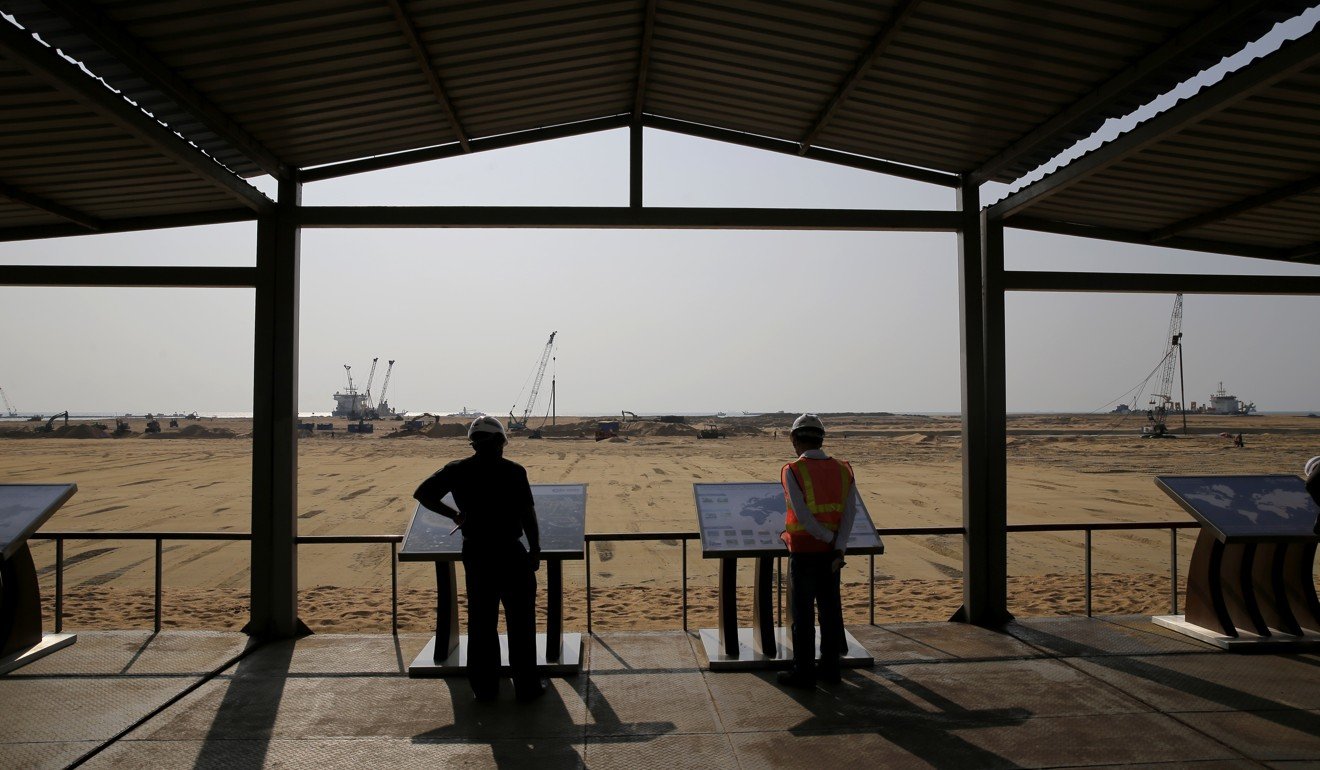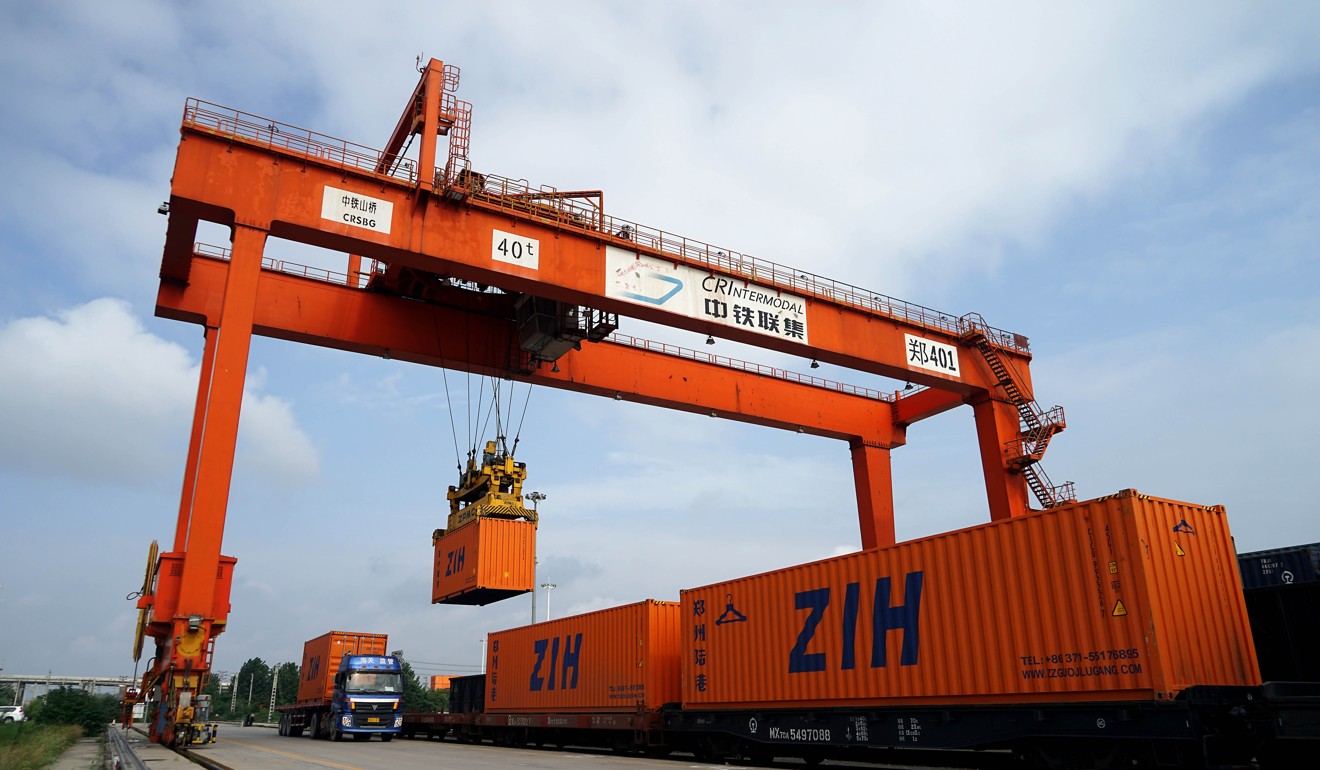
Why English law could rule on China’s belt and road disputes
China is setting up courts to handle disputes regarding its Belt and Road Initiative, but at the other end of the Silk Route, London is marketing the merits of its own legal system
This is perhaps appropriate, since English law is marketing itself as the go-to authority in any contract disputes that crop up between China and its belt and road partners, even as Beijing works on developing its own legal framework to rule on such matters “in-house”.

The belt and road, aimed at gaining access to resources and trade routes by means of large and much-needed infrastructure projects, mainly in Central and Southern Asia, is a programme as ambitious as it is elaborate. But the biggest challenge of this transnational connectivity project will probably be legal, as it will have to navigate rocky statutory waters. Inevitably, there will be legal disputes around some of these projects, and inevitably there will be many more as the belt and road picks up steam. How they are resolved will depend partly on the resolution procedures set out in each contract.
For example, if a Chinese company contracts to provide consulting services to a Turkish company about a new bridge over the Aras river, it will sign a contract describing how much it gets paid per month by the Turks. If the Turks don’t pay, or if the Chinese forget to show up, there will be a dispute and both sides will need to read the contract again to work out how to resolve their differences. The contract might require them to go to court, or to go to arbitration, depending on what the parties agreed upon before they signed the contract.
Why China-Russia relations are warming up in the Arctic
A month ago, financial media portal yicai.com reported that China was setting up courts that would handle disputes relating to the belt and road. The report was taken up by other media, but there has been little substantive analysis. There is a reason for this; it cites a communist document which has not been made public. This has echoes of the free-trade zone announcements from 2013, and follows a familiar pattern in which leaks hint at Chinese policy changes, but the regulations themselves remain secret.
The belt and road courts would operate out of Beijing, Xian and Shenzhen, under the auspices of the Supreme People’s Court of China. The Xian court would handle the land route across Central Asia, and the Shenzhen court would manage Southeast Asia and Africa. Pundits have compared the courts to the International Commercial Court in Singapore and the International Finance Centre Courts in Dubai, but this comparison is based on guesswork – no details about the courts have been given.

But China cannot just assume jurisdiction over disputes with foreign entities; such authority would have to be negotiated between the parties involved. Cross-border contracts of the type envisaged are more likely to submit to arbitration, and are also likely to be governed via third-party legal frameworks such as those in England, Hong Kong or New York – not China.
Why India is cool towards China’s Belt and Road
However, one way China could have ensured that its belt and road courts took precedence would be in the memoranda of understanding (MOUs) that it signed with other nations. Since many of these are national-level projects, state bodies could dictate the details of the contracts in question, so it is possible that China strong-armed some countries to submit to Chinese courts.
But why bother? Even if a nation, such as Turkey, agrees to work with China to build belt and road projects under the authority of its court system, any legal dispute China might win would be virtually unenforceable, since Turkey and China do not have a mutual recognition treaty for court judgments.
Indeed, China has hardly any such treaties in place. Previously, that was something Chinese companies gloated about, because if they breached contracts submitted to foreign courts, Chinese courts would refuse to enforce the overseas judgment rendering the Chinese company untouchable. Much to China’s chagrin, the same principle would hold true in reverse.

The UK, ever watchful for business opportunities, has been pushing hard for English law to govern contracts between Chinese companies and entities from other Asian countries, and for London arbitration to have jurisdiction. This is not as absurd as it may seem; English law is common for contracts involving Russian companies and central Asian companies, and I have even worked on contractual disputes where both parties are Russian and yet still elected for English law to govern.
The peculiar flexibility of English law allows it to adapt equitably to almost any commercial situation, partly perhaps because of the extremely mercantile and unideological nature of the English. At the same time, the aloof and objective British legal fraternity allows it to argue with gusto on behalf of anyone who pays.
Can China help tourist-hungry Indonesia create 10 ‘mini Balis’?
The UK’s desire to adjudicate on belt and road project disputes is not the pathetic longing of an old imperial nation for a little more influence on world affairs; it is the razor-sharp instinct that the British have for something marketable. They are right. Their laws and lawyers are more marketable than either Chinese or central Asian courts, but it is still possible for a Chinese company in a strong bargaining position to insist on use of Chinese belt and road courts. Whether that is really in their interests is a different matter. ■

